Unpredictable luck: 5 ways luck won the battle
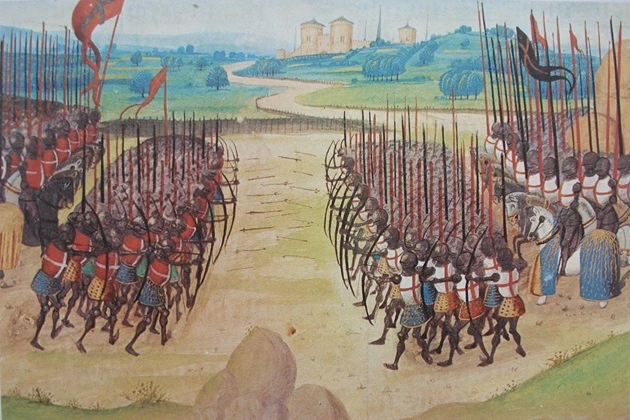
The outcome of any battle depends on many factors: personnel equipment, intelligence data, soldier training, and the commander’s strategy. Sometimes, an individual’s courage is important, but blind luck gives victory to one of the parties. An unpredictable event or an incredible combination of circumstances can turn the situation on the battlefield, turning an easy victory into a catastrophic defeat.
5 ways luck won the battle
1. The storm sank the Invincible Armada
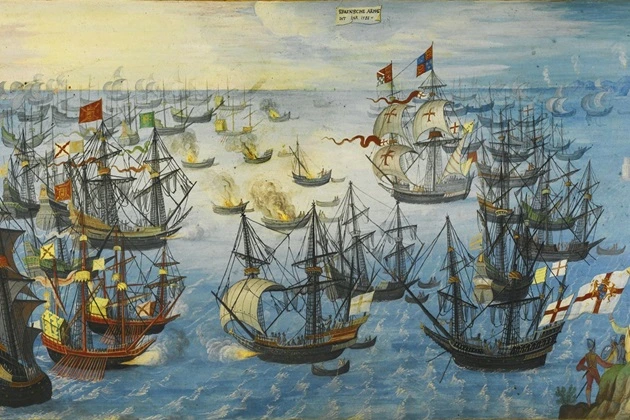
Spain was the strongest European power by the end of the 16th century, extending its influence far beyond the continent. The treasury was replenished thanks to countless colonies in South America, but a problem arose. Her name is Britain. For decades, English privateers plundered and sank merchant ships coming from the New World.
The year 1582 was a turning point—then, the Spanish crown missed 1,900,000 ducats, which was equal to the empire’s annual budget. Philip II decided to put an end to piracy once and for all. To do this, it was necessary to assemble a fleet that had never been seen before. On May 29, 1588, the Invincible Armada sailed from Lisbon harbor and headed for the English Channel.
130 ships, 30,000 soldiers, and sailors were moving towards Britain. Elizabeth I seemed doomed because nothing would stop such a force. The Armada suffered its first losses without leaving Spain’s territorial waters. A terrible storm began, which gave the British time to prepare for defense. The battered fleet reached the southwestern coast of England, where it met comparable enemy forces under the command of Francis Drake.
The battle lasted a week; neither side could win a convincing victory. Seeing that supplies were running out, Spanish Admiral Alonso Perez decided to return, but it wasn’t straightforward. The storm began again, scattering the Invincible armada. Only 60 ships returned home, and more than half of the personnel died. From that moment, the rise of Britain began, which would receive the status of “Mistress of the Seas.”
2. A Window of Opportunity in the Battle for Midway
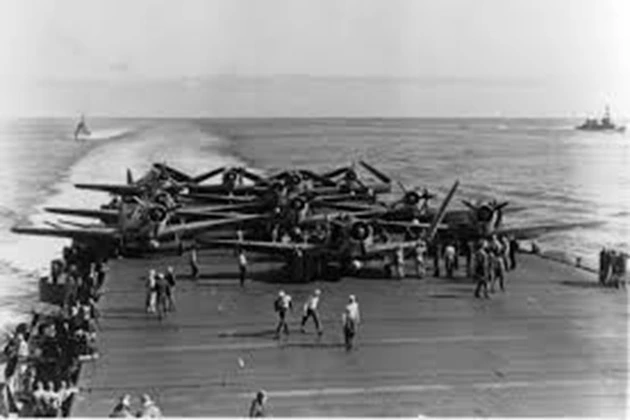
In June 1942, vast forces of the opposing sides concentrated in the vicinity of Midway Atoll. Japan had already carried out a successful attack on Pearl Harbor and was going to move further along the countless islands of the Pacific Ocean. The United States was preparing to give a decisive response, for which it assembled an impressive group of troops.
The Imperial Navy, confident of its superiority, tried to lure the Americans into a trap. Under the cover of light fighters, “flying fortresses” attacked the Japanese group’s transport vessels. However, none of the ships were sunk. At this point, the base on Midway remained virtually defenseless.
The retaliatory raid caused significant damage, and it seemed that the Americans would have to retreat. Perhaps this was the most obvious solution, but Chester Nimitz gave a suicidal order for the immediate departure of the leading forces to find the Japanese aircraft carriers. On June 3, at 7:45 a.m., the Americans were lucky: they found the enemy fleet in the most vulnerable position. Most of the Japanese fighters were refueling and replenishing ammunition while on the decks of aircraft carriers.
On the one hand, in such conditions, it is impossible to lift cars into the air quickly. On the other hand, the ships lost their maneuverability and became easy targets. In just a few minutes, the Japanese lost three aircraft carriers (one more will be finished off later), a heavy cruiser, and 248 aircraft. This battle was a turning point in the Pacific Theater of Operations.
3. The dirt destroyed the knights
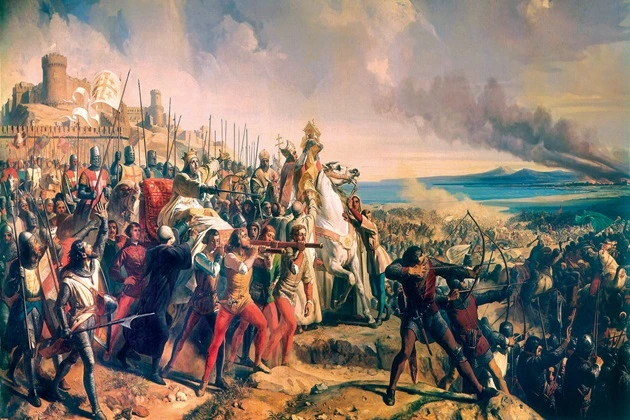
The Battle of Agincourt occurred on October 25, 1415, and was an episode of the Hundred Years’ War. King Henry V of England had at his disposal 8,000 men, of whom about 4/5 were archers. The French fielded 10,000 knights and some 25,000 troops from other branches of the armed forces.
The balance of power pointed to the unequivocal and crushing victory of Charles d’Albret. There is no hurry; you can get enough sleep and start the battle the following day — probably, such thoughts were in the minds of the French military leaders. Torrential rain fell during the night, turning the field of the upcoming battle into a swamp.
When the signal for an offensive sounded, the French knights on horseback rushed forward, but after a few hundred meters, they got stuck in the mud. They had to dismount and move on under a hail of arrows. The English archers took a convenient position on a hill, shooting the helpless infantry.
There were enough arrows for everyone. France lost up to 10,000 soldiers killed, and more than 1,000 knights surrendered, which was perceived as an unthinkable disgrace. The supposed easy victory turned into a disaster for the French. As a result of this battle, the English King Henry V became heir to the French throne. In addition, the institution of chivalry was shaken, and the European powers began abandoning the ancient tradition.
4. Defeat without a fight
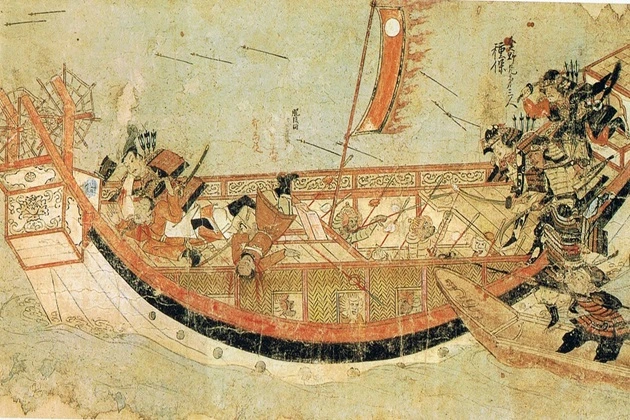
The Mongol Empire is famous for its continental conquests. At the peak of its power, it controlled most of Eurasia. Having reached the natural barrier on the southeastern coast of China, Kublai rushed further to the islands beyond the Yellow Sea.
The first campaign took place in 1274. The 30,000-strong Mongolian army landed on Tsushima and easily defeated the Japanese, after which it moved on. On the approach to Kyushu, Kublai’s fleet encountered an unexpected enemy. The typhoon scattered the ships, killing Commander-in-Chief Liu. The expedition returned to the continent with only one goal — to gather even more strength for the next batch.
In 1281, the Mongol-Korean and Chinese fleets set sail again. Several hundred ships and more than 100,000 people were supposed to crush Japan. However, everything immediately went wrong: the Chinese fleet was delayed and arrived later than the scheduled date, pushing the invasion’s date.
The relatively small Eastern Fleet was defeated during this time, having stumbled upon coastal fortifications. When the Mongol forces finally joined forces, the typhoon hit them again. The Japanese called the phenomenon “Divine Wind” or “kamikaze”. Kublai considered the possibility of a third campaign, but the empire began to disintegrate, so the council did not approve allocating funds for the construction of 500 more ships.
5. The fog saved the USA
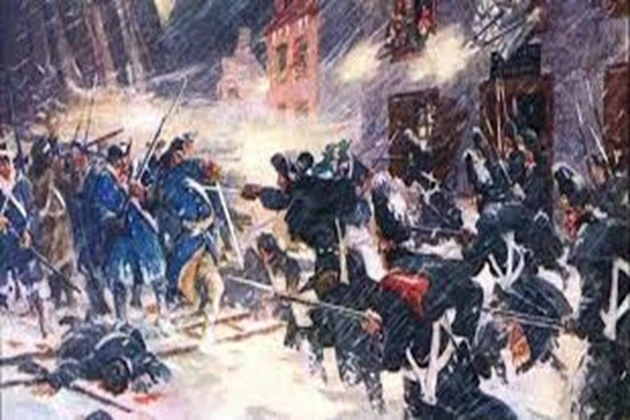
The American Revolution, or the War of Independence, began in 1775. Thirteen colonies refused to obey the British Crown and began armed struggle. During the first years, the Union army suffered a series of painful defeats, which is unsurprising.
Farmers, artisans, and handymen fought against the professional soldiers of the most substantial empire of their time. The critical moment came in August 1776. V I S I T A F R I N I K . C O M for contents. After another unsuccessful battle, the Continental Union Army was blocked on Long Island (modern Brooklyn). About 9,000 exhausted militiamen were preparing to repel the attack of the thirty thousandth British group.
According to the American commander George Washington, they had almost no dry powder and food left. The British could have taken New York with bayonets alone, but they delayed, waiting for the completion of the blockade in the strait.
Washington also hesitated: he was faced with a dilemma — to save or destroy the city to deprive the enemy of a convenient base. Despite the many loyalist citizens, they decided not to destroy New York. On August 24, the landing began. The British met no resistance and quickly moved inland.
Last night, under the fog, most of the militia evacuated to the mainland, slipping past patrol ships in the bay. A successful combination of circumstances allowed us to retain the most experienced fighters. It is unknown how the history of the United States would have turned out if Washington had been finally defeated on Long Island.




